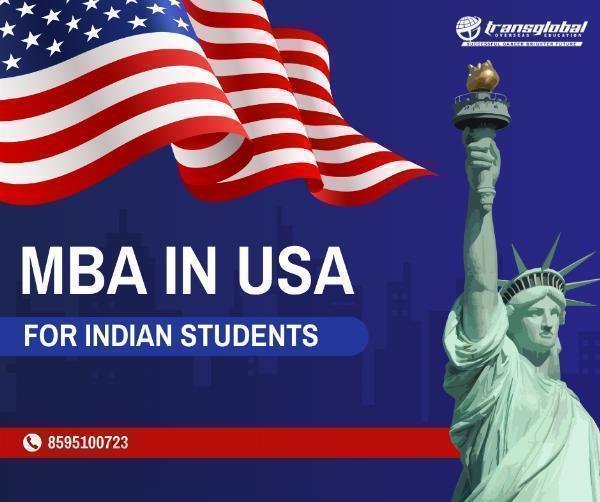How much does it Cost for Masters in Australia?

Strong 8k brings an ultra-HD IPTV experience to your living room and your pocket.
Australia is quickly becoming one of the most sought-after international study locations for Indian students and other international students. Australian universities are home to over half a million overseas students enrolled in courses. Of the Top 100 Globally ranked universities, around 8 are from Australia. World-class education, better-paying jobs opportunities, & technology-oriented education have made Australia one of the top overseas education nations. Verify your financial situation before deciding to study in Australia. We will support you in estimating the entire cost of studying in Australia for Indian Students. It will help you to plan your budget.
Why Study in Australia?
Top-Tier Education: Australia boasts eight universities in the QS World University Rankings top 100, ensuring world-class academic standards.
Flexible Work Options: Students can work up to 20 hours per week during the semester and full-time during breaks, balancing work and study effectively.
Affordable Costs: Tuition fees and living expenses in Australia are generally lower compared to the USA and UK, making it a cost-effective study destination.
Scholarships Available: Numerous scholarships, like the UQ High Achievers Scholarship, are offered to help cover tuition costs and reward academic excellence.
Cultural Diversity: With over 200 languages spoken, Australia offers a rich, multicultural environment that enhances the student experience.
Globally Respected Qualifications: Degrees from Australian universities are recognized worldwide, thanks to adherence to the Australian Qualifications Framework (AQF).
Innovative Learning: The education system emphasizes critical thinking and practical skills, fostering a unique and engaging learning process.
Regulated Standards: The Education Services for Overseas Students (ESOS) Act 2000 ensures that international students receive quality education that meets strict government standards.
Australia combines high-quality education with a supportive and diverse environment, making it an excellent choice for international students.
Universities to Study Masters in Australia for Indian Students
For Indian students seeking a Master's in Australia, several universities are highly regarded for their quality education and support for international students:
University of Melbourne: Offers top-tier Master’s programs across various fields, including Engineering, Business, and Arts, with a strong emphasis on research and academic excellence.
Australian National University (ANU): Known for its rigorous academic environment, ANU provides Master’s programs in areas such as Data Science, International Relations, and Environmental Science.
University of Sydney: Features a diverse range of Master’s courses in Finance, Information Technology, and Health, recognized globally for its research and professional programs.
University of New South Wales (UNSW): Offers comprehensive Master’s programs, including in Engineering, Business, and Law, with a focus on innovation and industry connections.
Monash University: Provides a wide array of Master’s programs, including Business, IT, and Education, and has a global presence with campuses in multiple countries.
University of Queensland (UQ): Offers strong Master’s programs in Science, Engineering, and Social Work, with a reputation for research and extensive student support.
University of Western Australia (UWA): Known for its research initiatives, UWA offers Master’s degrees in fields such as Engineering, Business, and Arts.
University of Adelaide: Provides robust Master’s programs in IT, Engineering, and Management, with a focus on research and industry collaboration.
These universities offer high-quality education, a supportive environment, and numerous opportunities for personal and professional growth.
Eligibility Criteria to Study MS in Australia
While specific requirements can vary between universities and programs, here are the general eligibility criteria for pursuing an MS in Australia:
Bachelor's Degree: A completed bachelor's degree in a relevant field from a recognized institution.
Academic Record: A strong academic record with a minimum GPA often required.
English Proficiency: IELTS, TOEFL, or PTE scores to demonstrate English language proficiency.
GRE/GMAT: Some programs may require a good score in either of these standardized tests.
Work Experience: While not always mandatory, relevant work experience can enhance your application.
Statement of Purpose: A well-written SOP outlining your academic and career goals.
Letters of Recommendation: Strong LOR from professors or employers.
Note: These are general requirements, and specific programs may have additional criteria. It's essential to check the website of the university and program you're interested in for detailed information.
Top Career Options After a Master's in Australia
Australia offers a dynamic job market with numerous opportunities for Master's graduates. Your career path largely depends on your field of study.
Popular Career Paths:
Technology: With a strong tech industry, roles in software development, data science, cybersecurity, and IT consulting are abundant.
Business and Management: Graduates often pursue careers in management consulting, finance, marketing, human resources, and entrepreneurship.
Engineering: Civil, mechanical, electrical, and chemical engineers find roles in construction, manufacturing, energy, and research.
Healthcare: Nurses, doctors, and allied health professionals are in high demand, especially in regional areas.
Education: Teaching English as a foreign language (TEFL) and higher education roles are available.
Other Factors Influencing Career Prospects:
Work Experience: Relevant work experience can boost your job prospects.
Networking: Building strong professional connections can open doors.
Post-Study Work Visa: This allows graduates to gain work experience in Australia after completing their studies.
Australia's multicultural society and strong economy create a favorable environment for international students to build successful careers.
Cost of studying Master in Australia
The approximate cost of studying a Master's degree in Australia ranges from AUD 22,000 to AUD 50,000 per year for tuition fees. However, this is just one part of the overall cost. You'll also need to budget for living expenses, which typically range from AUD 11,000 to AUD 22,000 per year. This covers accommodation, food, transportation, and other daily expenses. Therefore, the total estimated cost of studying a Master's in Australia can range from AUD 33,000 to AUD 72,000 per year. Important note: These are estimates, and the actual cost can vary depending on the university, city, lifestyle, and chosen course.
Conclusion
The cost of pursuing a Master's degree in Australia typically ranges from AUD 33,000 to AUD 72,000 per year. This includes both tuition fees and living expenses. However, it's essential to note that this is a general estimate, and actual costs can vary based on factors like chosen university, course, city, and personal lifestyle. To get a precise figure, it's advisable to research specific programs and consider additional expenses such as textbooks, healthcare, and travel.
FAQ
1. What is the average tuition fee for a Master's in Australia?
The average tuition fee for a Master's degree in Australia ranges from AUD 22,000 to AUD 50,000 per year.However, this can vary depending on the university, course, and program duration.
2. What are the living expenses in Australia for students?
Living expenses in Australia typically range from AUD 11,000 to AUD 22,000 per year. This includes accommodation, food, transportation, and other daily costs.
3. What is the total estimated cost of studying a Master's in Australia?
Combining tuition and living expenses, the total estimated cost of studying a Master's in Australia is between AUD 33,000 and AUD 72,000 per year.
4. Are there scholarships available for international students?
Yes, many Australian universities offer scholarships to international students. These can help reduce the overall cost of studying.
5. Can I work part-time while studying in Australia?
International students can work part-time up to 20 hours per week during the academic term and full-time during breaks. This can help cover living expenses.
Note: IndiBlogHub features both user-submitted and editorial content. We do not verify third-party contributions. Read our Disclaimer and Privacy Policyfor details.







